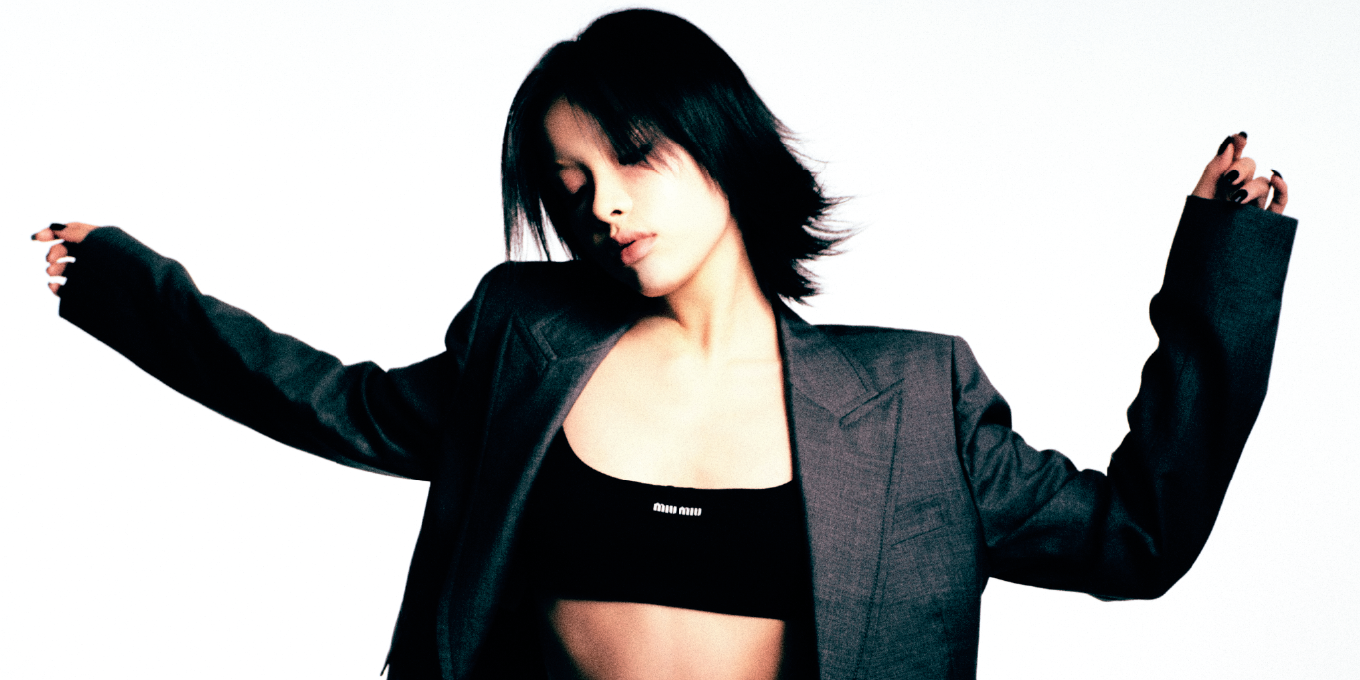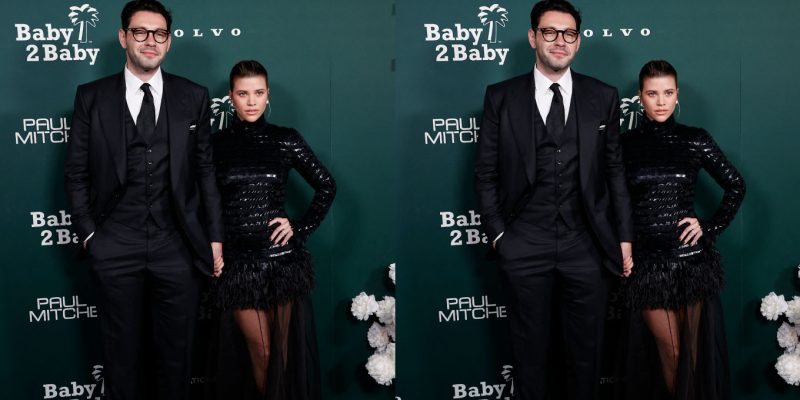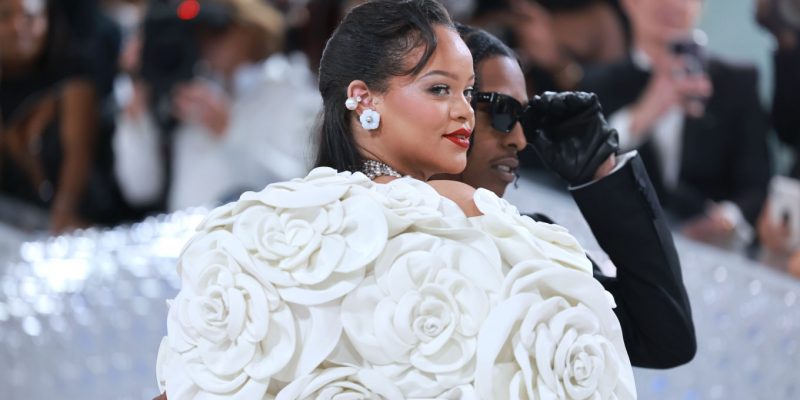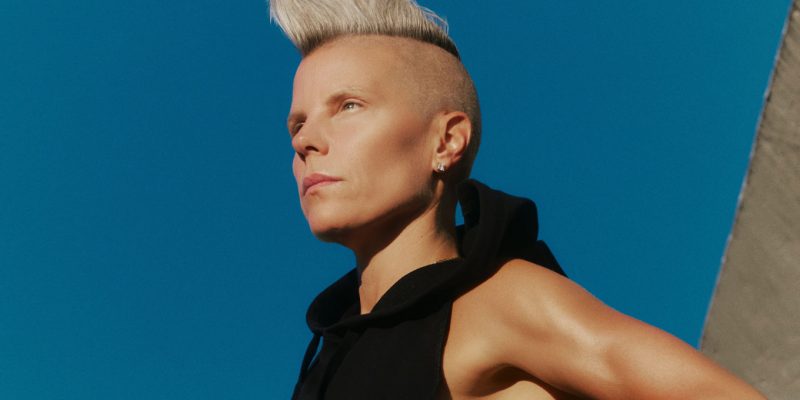Music
Lexie Liu Is a Star on the Rise
From giving up on being a K-pop idol to dropping out of business school in New York, the performing artist has already lived many lives.
by : Samantha Lui- Apr 27th, 2023

Jeremy Z. Qin
Though South Korea has been a musical force to be reckoned with since K-pop started dominating the charts about a decade ago, the Chinese music scene is starting to garner attention too, with pop stars like Jackson Wang, Lay Zhang and G.E.M. finding international success. Now, 24-year-old Lexie Liu, from Changsha, China, is joining those ranks as a singer, songwriter and rapper—and fast becoming one of the top Asian acts to watch.
Liu has turned the heads of music critics and fans alike for mashing up elements of cyberpunk, electropop, hip hop and rock in her songs, and the unique combo has paid off. Her music videos, which are more like short films packed with drama and masculine/feminine plays on traditional Chinese dress, have stacked up more than 20 million views on YouTube, and she has close to 250,000 monthly listeners on Spotify. Much like in her music, the artist loves a mash-up in the style department too. Her tomboy-meets-feminine style has propelled her into the high-fashion world, and she’s modelled for and collaborated with brands like Yves Saint Laurent, Chanel and Miu Miu. “I think fashion is like armour for me—it makes me feel more powerful and more in character when I’m in my music,” explains Liu over Zoom from Shenzhen, China. “Every outfit wakes a part of me up.”
Liu’s tendency to unapologetically be herself—clashing with stereotypes of the quiet, demure Asian woman and rapping about encouraging ladies to “boss it up” in songs like “佳人 Jia Ren”—has gained her a loyal following. The artist also stands out thanks to cross-lingual lyrics. In her first self-produced full-length album, The Happy Star, she sings in both English and Mandarin with some Spanish phrases peppered in. Liu’s ability to pick up different languages dates back to her school days. In Grade 11, she enrolled in an international school to improve her English. And two years ago, she was inspired to learn Spanish after her song “Hat Trick” was featured on the hit Netflix drama series Elite, which follows a group of working-class teens who enroll in an exclusive private school in Spain. “Language is a really powerful tool when it comes to delivering messages,” she says.
Unlike the upbeat bubble-gum pop that dominates K-pop and C-pop, Liu’s futuristic electropop sound is more akin to the stylings of artists like Charli XCX and Canadian sensation Grimes. Liu’s been a fan of Grimes for years and dreams of collaborating with her. “One day, someone told me, ‘Grimes followed you on Instagram.’ I was like, ‘What?!’ and then went super crazy about it,” she gushes. “I love her music and her style in the sense that they’re really intellectual.”
On The Happy Star, Liu’s love of tarot cards—which she first discovered as a high-school student—shines through. She recently reconnected with tarot and started to find meaningful messages in the readings. Her songs “Fortuna” and “Magician,” which are named after two cards, address how destiny and manifestation can shape your life’s journey. It’s a fitting theme for Liu’s trajectory in the music world too, considering her path to stardom has taken a few side steps.
In 2015, at the age of 17, the artist competed on the South Korean reality-television show K-pop Star 5, a series in which the country’s top entertainment agencies search for the next sensation. Although Liu finished in fourth place, staying in Korean entertainment wasn’t for her. “I realized that [the K-pop industry] really wants everything to be perfect, but it’s not really for your creative purposes—it’s for theirs. I just felt like it’s more important for me to express myself freely,” says Liu, adding that she wanted to write and produce her own songs.
During this time, Liu was accepted into the global-business program at Fordham University in New York City, which she jetted off to after getting eliminated from the series. However, it wasn’t long before she realized the business world wasn’t for her, and she moved back to China to take a crack at pursuing music full-time. It wasn’t an easy move, since her parents weren’t totally behind her career choice, but in 2018, Liu competed in a Chinese rap-competition show called The Rap of China and came in fourth, which quickly propelled her career to international heights. “I always considered music a Plan B rather than a Plan A,” she says. “I think a lot of Asian people will relate to this because families won’t really support you when you go into industries that are not ‘real jobs’ to them.” Thankfully, she forged ahead despite outside opinions.
As an artist who has already lived through many different incarnations, Liu says she isn’t sure what will come next in her music, but she wants to continue to be more experimental with different genres while also staying true to herself. That’s why she named her latest album The Happy Star—it’s after the Star tarot card, which alludes to finding endless inspiration. She says that when she’s finished with a music project, people often ask if she’s afraid her inspiration will dry up. “I used to not know how to answer that,” she says. “But this card kind of told me the answer.”
Read more:
South Korean Singer-Songwriter Seori Is Doing Things Her Own Way
6 Canadian Artists to Watch in 2023
Artist Yumi Nu Lives in the Now
Newsletter
Join our mailing list for the latest and biggest in fashion trends, beauty, culture and celebrity.
Read Next

Beauty
Dyson Just Launched Its Most Intelligent Hair Dryer Yet
Get ready to upgrade your blowout game.
by : Lauren Knowles- Apr 25th, 2024

Fashion
Meredith Shaw and Penn Have Created a Plus-Size Summer Dress Collection That "Feels Like Candy"
Morning Show Host Meredith Shaw wants you to "see your summer" in this curated collection for sizes 14-32.
by : Allie Turner- Apr 25th, 2024

Beauty
Summer Prep: How to Feel Confident in Your Swimsuit
New Size-Inclusive Swimwear: Gillette Venus partners with The Saltwater Collective to Launch a Collection for Any Body
by : ELLE Canada- Apr 24th, 2024




